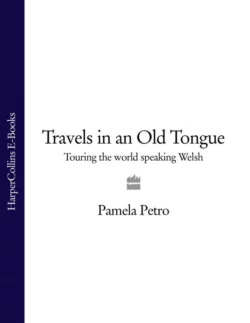Travels in an Old Tongue: Touring the World Speaking Welsh

Pamela Petro
Тип: электронная книга
Жанр: Отдых, туризм
Язык: на английском языке
Стоимость: 457.61 ₽
Статус: В продаже
Издательство: HarperCollins
Дата публикации: 16.04.2024
Отзывы: Пока нет Добавить отзыв
О книге: The idiosyncratic and witty travelogue of a young Welsh-speaking woman who travels the globe in search of Welsh communities.Studying in Lampeter, Dyfed, and learning Welsh, Pamela Petro found it infuriating that whenever – in the post office, at the butcher’s, in the pub – she stumbled with her Welsh, the locals would – kindly, they thought – always revert to English: ‘English is so much easier for you, izznit?’ So she decided to go where English was not an option (i.e. not to Canada, Australia, South Africa or the USA) for the student of Welsh – Paris…Oslo…Tokyo…all kinds of unlikely places with long-standing Welsh communities.Once you start to look, you find the Welsh everywhere: among Petro’s intended ports of call were the Hong Kong Men’s Choir, all Chinamen who sing in Welsh; the Japanese bardic eisteddfod in Tokyo; the Welsh golfers of Oslo; the diners of the Paris Welsh Society (one of three in the city); and many more including, naturally the long-suffering Patagonians. Her simultaneous virtual travels (through the Internet) explore the effects and implications of the language itself, ranging from global searches for the strongest Welsh expletive (Iesu Christ) to how exactly Welsh (officially outlawed between 1536 and 1967) survived centuries of English oppression.